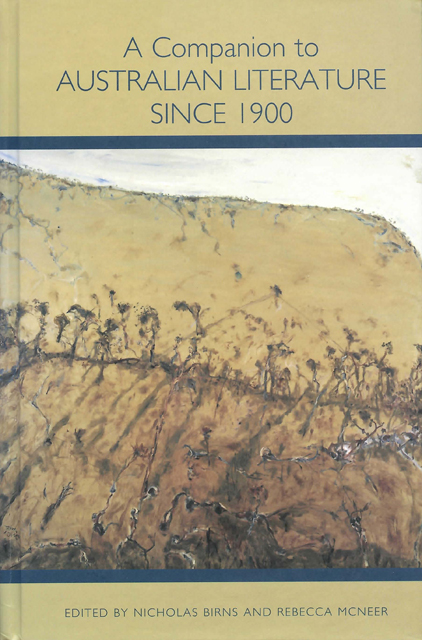Book contents
- Frontmatter
- Dedication
- Contents
- Chronology of Main Events in Australian History, 1901–2005
- Acknowledgments
- Note on the Cover Illustration and Artist
- Introduction
- Part 1 Identities
- Part 2 Writing Across Time
- Part 3 International Reputations
- Part 4 Writers and Regions
- Part 5 Beyond the Canon
- Notes on the Contributors
- Index
2 - Writing Aboriginality: Authors on “Being Aboriginal”
Published online by Cambridge University Press: 10 March 2023
- Frontmatter
- Dedication
- Contents
- Chronology of Main Events in Australian History, 1901–2005
- Acknowledgments
- Note on the Cover Illustration and Artist
- Introduction
- Part 1 Identities
- Part 2 Writing Across Time
- Part 3 International Reputations
- Part 4 Writers and Regions
- Part 5 Beyond the Canon
- Notes on the Contributors
- Index
Summary
I am black of skin among whites,
And I am proud,
Proud of race and proud of skin.
— Kath WalkerThere Weren’t any Aborigines in Australia before invasion. There were simply people who were identified and known by their relationships to each other through familial connections, through connections to country, through language groups, and through moieties. “Aborigines” were created when the colonizers used a Latin term meaning “original habitants” to describe the peoples whose land they were stealing. More commonly used today is the term Indigenous, another Latin term meaning “native to.”
Since the point of invasion in 1788, the concept of Aboriginality has been an ongoing construction of colonizers, an imposed definition, and at times a political issue for Australia’s first nation peoples, who have been forced to live by legislation created around it, to answer to variations of it, while at the same time trying to explain to our “other,” that is, non- Aboriginal Australians, what it actually “means to be Aboriginal” from our perspectives and based on our lives in the twenty-first century.
In the 1960s Oodgeroo Noonuccal (then Kath Walker) hit the literary limelight as Australia’s first published “Aboriginal poet,” and since then we Aboriginal writers have been using our literature as a means of defining ourselves, as well as a tool to defend our right to our identity. We are also often inspired by the need to dissect historical government definitions that categorized Aboriginal people into a caste system in order to assist a racist assimilation policy. We use our writing also to reclaim pride in our First Nation status, to explain the diversity of Aboriginal experience, and to demonstrate the realities and complexities of being Aboriginal in the twenty-first century.
The concept of Aboriginality is certainly a difficult thing to grasp for contemporary Australians; indeed, sometimes even for Aboriginal people themselves, especially those who have been denied access to family, culture, and community due to government policies of the past. The effects of the differing experiences of Aboriginality, though, are nevertheless evident in writings by Aboriginal people, regardless of genre.
- Type
- Chapter
- Information
- A Companion to Australian Literature since 1900 , pp. 41 - 60Publisher: Boydell & BrewerPrint publication year: 2010
- 1
- Cited by



